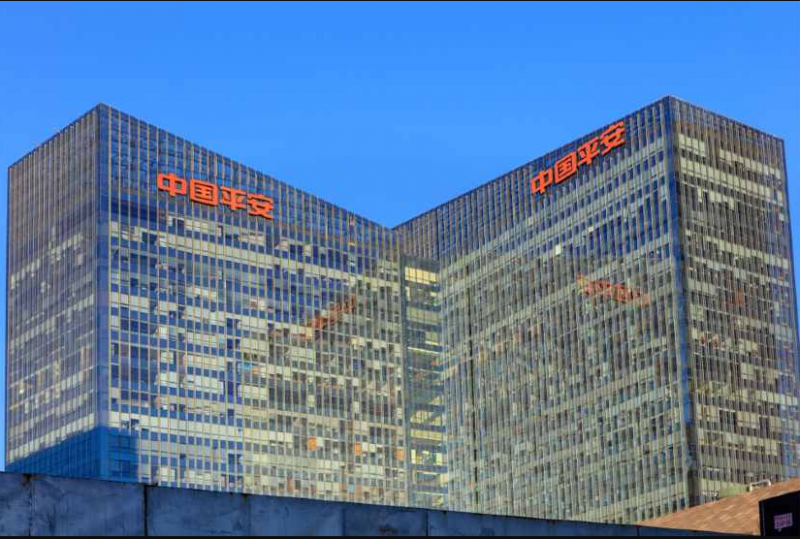
BEIJING: China's largest insurer by market capitalization Ping An Insurance (Group) posted higher-than-expected profits in the first half, but its core insurance business remained a concern.
Interim profit for January to June rose 4% year over year to 60.27 billion yuan (US$8.8 billion) or 3.45 yuan per share, defying Bloomberg's prediction of a 9% decline to 52.75 billion yuan.
Ping An Insurance (Group), China's largest insurer by market capitalization, posted higher-than-expected first-half net profit, but its core insurance business remained a concern.
Interim profit for January to June rose 4% year over year to 60.27 billion yuan (US$8.8 billion) or 3.45 yuan per share, defying Bloomberg's prediction of a 9% decline to 52.75 billion yuan.
The Shenzhen-based insurer announced an interim dividend of 0.92 yuan per share, up 4.5% from last year.
Net profit in its asset insurance division fell 22% to 8.38 billion yuan, while profits in its asset management and technology divisions fell 40.6 and 23.8 percent, respectively.
Total investment income fell 67% in the first half to 14.77 billion yuan, mainly due to 42.72 billion yuan in real losses due to market volatility.
It reported a 25.6 percent increase in first-half net profit from banking business to 22.09 billion yuan.
According to one analyst, Ping An's poor performance in its core insurance business is one reason the company has pressured HSBC to divest its Asia business to improve the insurer's investment performance.
Ping An, HSBC's largest shareholder with a 9.2 percent stake, launched a restructuring campaign in April, supported by a number of minority shareholders. However, HSBC's management rejected the plan, citing cost and risk as primary concerns.
"Ping An's core life insurance business has recovered at a slow pace due to the pandemic," said Kenny Ng Lai-yin, a strategist at Everbright Securities International. He said the slowdown in the mainland real estate market has also had an impact on Ping An's investment performance.
Ping An set aside 43.2 billion yuan in provisions for its investment in Fortune Land last year, making it the developer's largest shareholder with a 25.2% stake. Fortune Land has a debt of 93.9 billion yuan with interest and principal.
“Ping An wants other areas in its investment portfolio to offset the negative impact of Fortune Land to some extent,” Ng explained. "The HSBC spin-off will undoubtedly benefit Ping An's investment performance."
Toto Consulting, a Hong Kong-based due diligence firm, released a research report last week that is believed to have been commissioned by Ping An. According to the report, HSBC has an option to wind up its Asian business and distribute shares to existing shareholders, which could unlock a market value of around US$26.7 billion.
The second option involves severing HSBC's Asian business, which could result in a profit of US$12.2 billion, while the third option involves severing the bank's Hong Kong retail business, which could result in a profit of US$40.6 billion. Is. New investors are expected to take a minority 25% stake in the listed entity in both the scenarios.
Such a move could help HSBC evade UK regulations if it is asked to suspend dividend payments, a significant source of income for Ping An, according to Ng, who said That the insurer received more than $3.2 billion in dividends from HSBC. ,
Ping An's stock closed 1.3 percent lower at HK$42.95, a new low five years before the earnings announcement. Since calling for a split with HSBC in late April, the stock is down 16%.
As a London-based bank, HSBC was forced to cancel a final dividend of HK$0.21 per share for 2019 and comply with a UK regulator's order to suspend the dividend for the majority of 2020. Based on Ping An's 1.64 billion share stake and HSBC's average. Payments over the past five years, this equates to approximately US$937 million in lost income.
"The Asia spin-off is too complex for a multinational like HSBC," said Vincent Kasby, Asia head of consulting firm Sia Partners in Paris. “With these decisions there is always a delicate balance between losing one of its key competitive advantages and cost savings in the accessible avenues for financial services in global markets, products and services.”
Photos of destroyers reveal the Chinese navy is expanding its fleet
Uncertain outcomes will likely result from China's military display over Taiwan